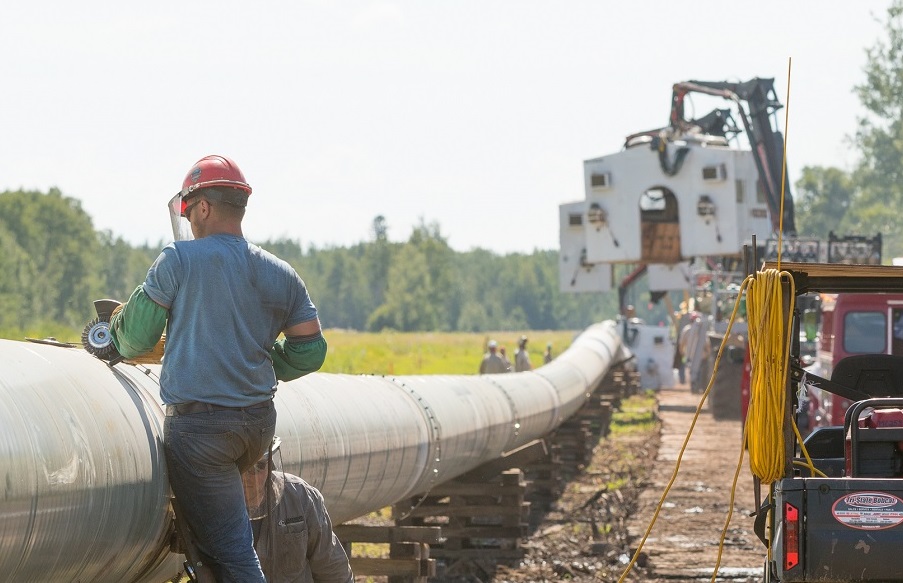
Enbridge Starts Service on Canadian Section of Line 3
Enbridge has begun commercial operation of the Canadian section of its Line 3 pipeline, even as it continues to navigate Minnesota regulators for the U.S. portion of the $9 billion replacement project.
(P&GJ) — Enbridge has begun commercial operation of the Canadian section of its Line 3 pipeline, even as it continues to navigate Minnesota regulatory waters for the U.S. portion of the $9 billion replacement project, the company confirmed.
Line fill of the 665-mile (1,070-km) Canadian segment of the Line 3 replacement pipeline was completed in mid-November and the replacement pipeline in Canada connects to the existing U.S. Line 3 at the Manitoba-U.S. border has started moving oil, according to Enbridge spokesperson David Coll.
“The new pipeline will run at approximately half of its rated capacity (~760,000 barrels per day), some 400,000 barrels per day, until such time as the Minnesota portion receives final approval, is constructed and brought onstream,” Coll said in a statement provided Monday to Pipeline & Gas Journal.
Enbridge has operated Line 3 since 1968, with the Canadian portion of the pipeline stretching from Hardisty, Alberta, to Gretna, Manitoba, and the U.S. portion delivering oil to Superior, Wisconsin. Plans to replace the aging pipeline have been in the making since 2013.
Enbridge hopes to bring the U.S. segment online during 2020, but the timing is uncertain, as Minnesota utility regulators ordered further study in October on potential impact of oil spills from Line 3 on the Lake Superior watershed.
“Enbridge continues its work with the appropriate regulatory agencies to secure permits and approvals at the federal, state and local levels before the start of construction,” he added. ”Once we have timelines from the Minnesota Public Utilities Commission and agencies, we'll be able to provide the next key milestones toward the start of construction.”
The Line 3 replacement is the largest project in Enbridge history. The Canadian portion of the project was estimated to cost $5.3 billion, or about 59% of its $9 billion total.
It is one of three key pipeline projects that would alleviate takeaway capacity constraints from Alberta’s oilsands, all of which have faced continuing opposition from environmental activists. Construction is under way on the Trans Mountain Pipeline expansion to the British Columbia coast, while the Keystone XL pipeline has been delayed by legal challenges in the United States.
Trans Mountain was sold by Kinder Morgan to the government of Canada for $4.5 billion last year.

